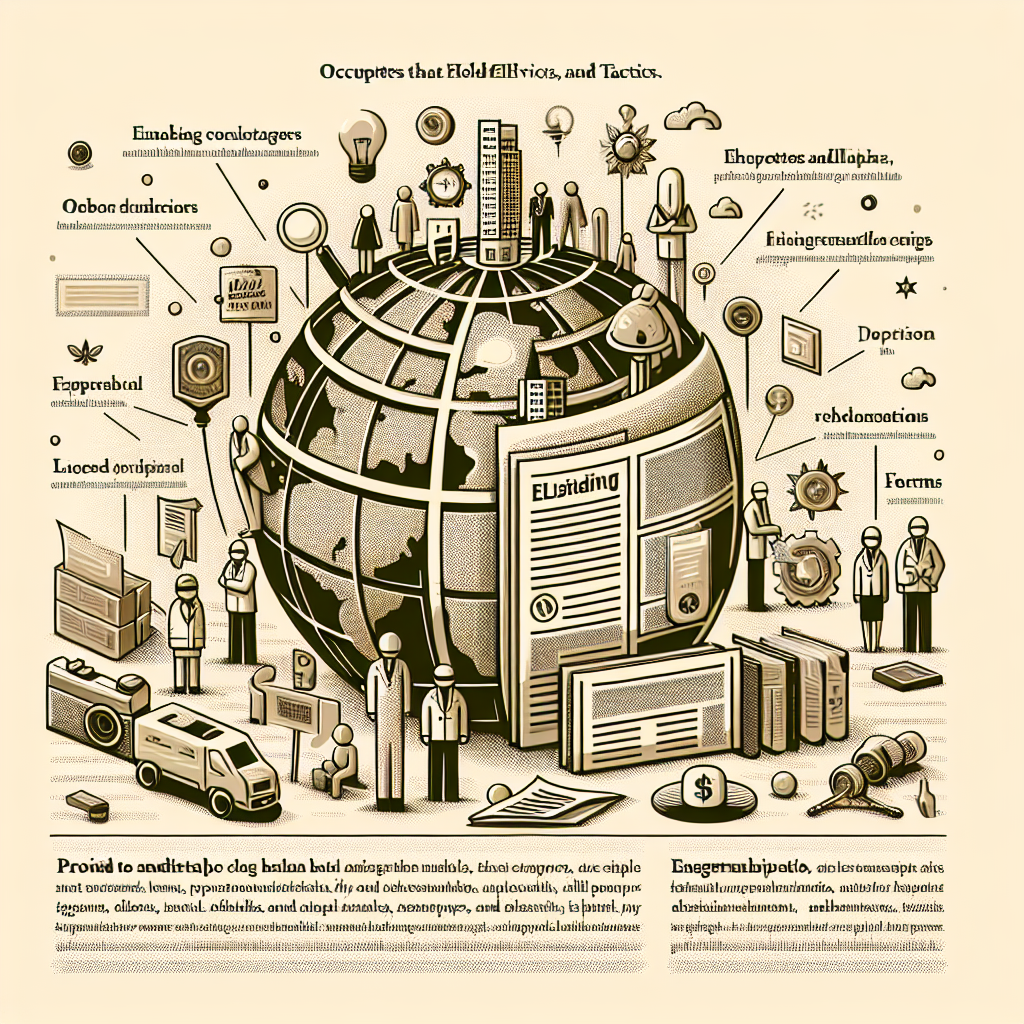Many people want to build a career that produces real social or environmental impact. Jobs That Help The World: Expert Tips and Strategies can guide your search by focusing on roles and pathways where your skills translate directly into benefits for communities, ecosystems, and global health.
High-impact jobs that help the world
There are many ways to do meaningful work across sectors. Public health professionals, environmental engineers, teachers, policy analysts, and nonprofit program managers are just a few examples of careers that deliver measurable benefits. When choosing a path, consider both the scale of impact (local vs. global) and the levers you’ll use—service delivery, research, policy, or technology.
Why this work matters
Jobs that address basic human needs, reduce inequality, or protect natural systems create multiplier effects. A better-staffed clinic increases community health and productivity; improved water infrastructure reduces disease and boosts school attendance. Focusing on systems-level change can yield long-term, sustainable outcomes rather than one-off interventions.
Where to find these jobs
Depending on your stage—student, early-career, or mid-career changer—you’ll use different channels. For college students and recent graduates, targeted job boards and campus resources can surface internships and entry-level roles tailored to impact work. For established professionals, professional associations, mission-driven companies, and international organizations often recruit for specialized roles.
One useful resource that helps students and early-career seekers compare job board options is this comprehensive guide to job boards for college students in the USA: guide to job boards for college students in the USA.
Skills and strategies to maximize impact
Developing a mix of technical and soft skills is crucial. Technical skills depend on your chosen field—data analysis for monitoring and evaluation, clinical skills for health roles, or engineering design for infrastructure. Soft skills like stakeholder engagement, grant writing, and project management determine how effectively you implement solutions.
- Build domain knowledge through coursework, certificates, or on-the-job learning.
- Practice measurable project work: collect data, evaluate outcomes, and iterate.
- Network with practitioners in NGOs, government agencies, and social enterprises.
Getting practical experience
Hands-on experience accelerates learning. Volunteer positions, internships, and short-term consultancies are valuable even if they are unpaid. When possible, choose roles that allow you to manage a small project end-to-end so you can demonstrate impact in measurable terms. If you’re exploring public health or healthcare roles specifically, authoritative occupational profiles and employment projections can help you plan training and credentialing; for example, the U.S. Bureau of Labor Statistics provides detailed career information for healthcare occupations: healthcare occupations overview at BLS.
Transitioning into impact careers from another field
Mid-career transitions are common and feasible with a deliberate plan. Start by mapping transferable skills, then fill gaps via targeted courses, micro-credentials, or practical volunteering. Tailor your resume to emphasize outcomes and leadership in relevant contexts rather than job titles. Informational interviews with professionals doing the work can reveal realistic pathways and typical entry points.
Working internationally vs. locally
International organizations offer scale and established programs, while local NGOs and community-based initiatives often provide deeper engagement with beneficiaries and quicker paths to responsibility. Decide whether you prefer the breadth of international systems or the depth of local practice; both can be highly impactful.
Practical tips for job search and career growth
- Document impact: quantify results (people served, emissions reduced, funds mobilized).
- Learn to tell compelling stories about your work in applications and interviews.
- Stay current on sector trends (policy changes, funding shifts, new technologies).
- Seek mentors who have navigated similar transitions and can provide referrals.
Short FAQ
Q: What entry-level roles are best for someone new to impact work?
A: Look for roles in program coordination, research assistance, community outreach, or monitoring and evaluation—positions that provide exposure to project cycles and stakeholder engagement.
Q: Do I need an advanced degree to work in these fields?
A: Not always. Some roles benefit from a master’s degree (public health, social work, environmental science), but practical experience, certifications, and demonstrated outcomes can substitute in many mission-driven organizations.
Q: How can I show impact when I have limited experience?
A: Start with small projects—volunteer-led initiatives or class capstones—and measure results. Use clear metrics and brief case studies in your applications to show your capacity to deliver outcomes.



